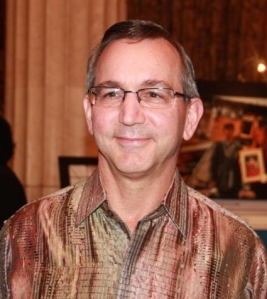Esteemed mythologist Joseph Campbell is famous for breaking down “The Hero’s Journey,” a template by which all heroes — from Hercules to Harry Potter — follow the same pattern: the separation, the initiation and the return.
 When Nabire, Papua-born Els Tieneke Rieke Katmo decided to earn her PhD in gender studies and HIV/AIDS at Flinders University in Adelaide, Australia, distance and separation were never factors, and the path seems more fluid and ultimately direct — but no less heroic.
When Nabire, Papua-born Els Tieneke Rieke Katmo decided to earn her PhD in gender studies and HIV/AIDS at Flinders University in Adelaide, Australia, distance and separation were never factors, and the path seems more fluid and ultimately direct — but no less heroic.
After all, Els — a professor at the State University of Papua in Manokwari, West Papua — is from a remote part of Indonesia where walking three hours to school in the morning is par for the course.
It’s more than 4,000 kilometers from Nabire to Adelaide, but distance has done little to shake the confidence of a woman who has dedicated her life to gender issues and HIV awareness.
“Suddenly my neighbor passed away because of HIV,” the 38-year-old mother of two said. “Then one-by-one my relatives and friends started passing away. The biggest problem was people still believed these deaths were caused by black magic. A lack of education of the people around me pushed me to find out more about the issue, to help people around me.”
During her undergraduate dissertation in the same university where she has taught since 2009, Els stumbled upon a number of gender issues and overall lack of education leading to the spread of HIV. “I looked closely at the use of contraception by women and realized there was a big lack of knowledge about this, which is one of the major reasons behind the spread of HIV,” Els said.
Born to a forward-thinking father from Merauke in Papua, Els knew from a young age that she and her siblings were different. School attendance was mandatory. Men and women were equal. Els learned how to ride a motorbike and mend faulty electric devices while her brothers were taught how to cook.
Most recently Els, who earned her master’s degree in gender studies from the University of Indonesia, has tackled HIV among housewives in Manokwari.
“All the projects and research I’ve been involved in, have led me to the conclusion that not only education, but also the mentality about gender and HIV have to be changed,” Els said. “This pushed me to pursue a PhD focusing on gender, the sexuality of Papuan men and women and its relation to HIV and AIDS.”
Awarded a scholarship by the Australian Agency for International Development (AusAID), now Els is ready to take her mission to the next level.
“I strongly believe knowledge is the most important element to survival,” Els said. “After I return to Papua, I’ll collaborate with local radio to produce a program about HIV. Also, I will start a project for the economic empowerment of women and kids with HIV. The most effective way to make people understand about the topic is by giving them examples based on daily life.”
Close friend and a master’s degree candidate at the University of Adelaide Zainah Rahmiati believes it’s her friend’s deep roots and unassuming attitude that has helped her make a lasting impact on the lives of men and women in Papua.
“Els is a great person, but at the same time she’s very humble,” Zainah said. “She has great ideas to make a change in society. Papua is remote and a lack of infrastructure makes it difficult for Els to implement her changes, but she never gives up. She is an inspiration for agents of change.”
A tireless advocate of education, Els firmly believes training and proper schooling is essential to understanding and stopping the spread of HIV in Papua.
Her passion led her, together with her best friend Maria Goretti, to establish a children’s library in Edera, a tiny village 10 hours by car from Merauke.
Most children in Edera, Maria explained, are 8 years old before they can read or write properly.
“In the village where we opened the library, if you can go to church or to school it is already a blessing, let alone gain access to quality books,” Maria said. “The idea of starting to provide books to kids and teenagers came after I saw in the school where I teach the low interest children have for reading. In the library the school books are very old, some were published in the ’70s.”
Marice Aun, 12, dropped out from school after third grade because her parents could not afford to pay the fees. Because of the low quality of education, she barely learned how to read.
“I fell in love with books because of the reading garden,” Marice said. “I’m so happy to be able to read colorful and cute books, they are interesting. I want to keep studying, and when I grow up I want to become a midwife.” A midwife who can help Els explain the dangers of HIV across Papua.
“I want the next generation of Papuans to have a better future, to be healthier, smarter and to believe in themselves,” Els said. Campbell would be impressed.
Source: The Jakarta Globe



